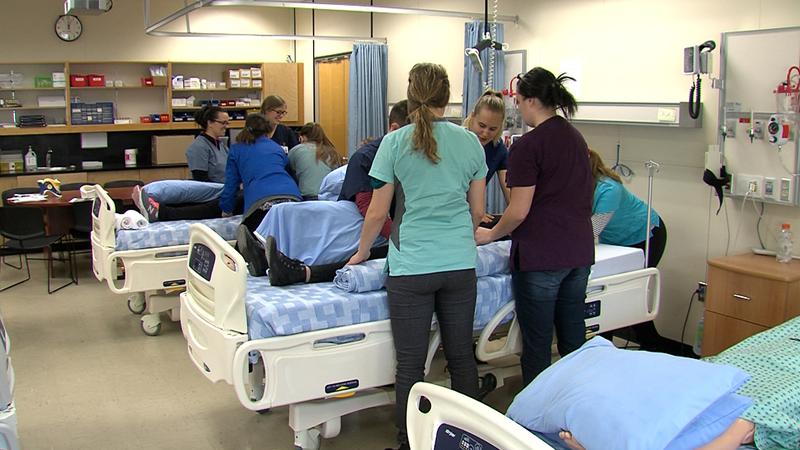
TRU nursing school works to help fill critical shortage
KAMLOOPS — Throughout the COVID-19 pandemic, a spotlight was placed on the healthcare sector across canada.
Thanks in part to burnout, early retirement and people switching professions, hospitals like Royal Inland in Kamloops suffered from staffing shortages within their nursing ranks.
“Continue to help people understand that there is collaborative solutions and we need to actually be working on them. I think it’s very hard and very discouraging for students if all they hear is the doom and gloom,” said TRU Dean of Nursing Rani Srivastava.


